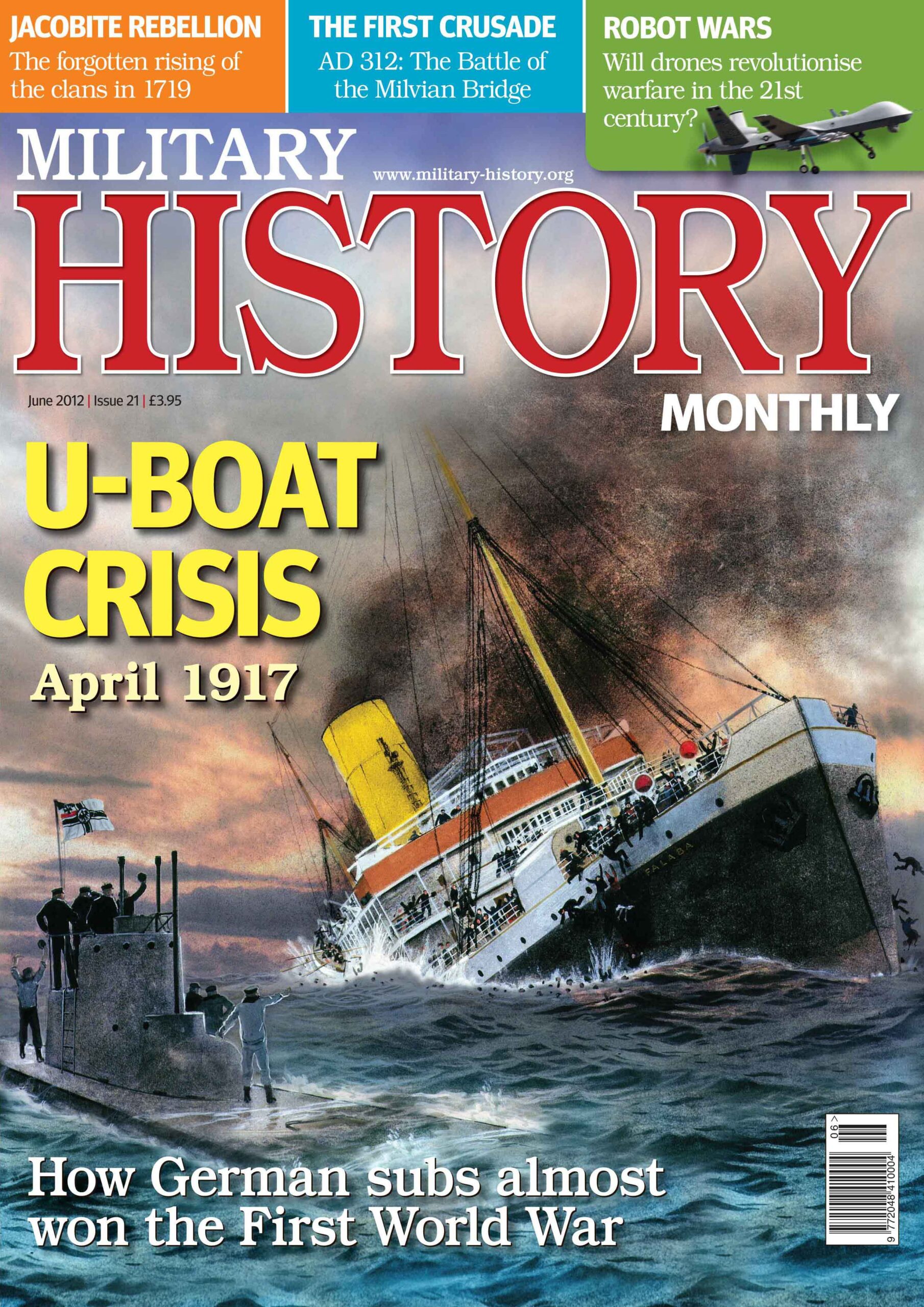The June 2012 issue of Military History Monthly, the British military history magazine, is on sale today.
In the latest issue we cover:
U-boat Crisis – The First Battle of the Atlantic
In April 1917, the Germans almost won the First World War -not on the Western Front, but on the Western Approaches. Military History Monthly investigates.
History of the British Army – Ferozeshah, 21-22 December 1845
India served as the main training-ground of the British Army throughout the 19th century. Among the most formidable of the enemies they faced there were the Sikhs of thePunjab in the later 1840s.
The ‘Nineteen’ – the forgotten Jacobite Rebellion of 1719
The Fifteen and the Forty-five are famous. But these were not the only occasions when the Highland Jacobites rose against the Hanoverian succession. Chris Bambery reports on the forgotten ‘Nineteen’.
AD 312 – Rome’s great battle for empire and church
Ancient military historian Ross Cowan explores the victory that made Constantine emperor and Christianity the imperial religion.
Machine-guns and Drones
A century ago, machine-guns revolutionised warfare. Will drones do the same now? Defence journalist David Hambling explores.
Also in this issue: War Culture, War Zone, WMD, and Book Reviews.
From the editor
Neil Faulkner, Editor/n
The centenary of the First World War approaches. Books are being written and TV documentaries commissioned. Commemorative projects are seeking funds. Scholars are organising conferences. The world is gearing up to mark a terrible anniversary in a host of different ways.
What reappraisals will emerge? Which new theories will gain credence? Which old ones will stand the test of fresh scrutiny? Will useful lessons be drawn from re-engagement with the most tragic period in human history (1914-1945), or will denial, falsehood, and ideology leave us as ignorant about our own folly as before?
We shall see. Our lead article this issue offers one example of how easily our perceptions can be distorted. British popular images of the First World War are dominated by the Western Front. TheSommeand Passchendaele are virtually household words.
How many people are aware that the monthBritaincame closest to losing the First World War was April 1917? And that the threat it faced was a decisive defeat at sea at the hands of a new weapons system at the cutting edge of technology?
Two weapons were destined to revolutionise naval warfare in the first half of the 20th century, consigning the supremacy of the big-gun battleship to the history books: the submarine and the bombing plane.
In the face of both, the Royal Navy, mistress of the seas, steeped in tradition, and suffering an acute and debilitating ‘Trafalgar obsession’, was found wanting. The pre-war build-up of dreadnoughts was one expression of this, their vast expense and dominance within the naval establishment at the outbreak of war bearing no relation to the minor military role they subsequently played.
Worse, on the very brink of national disaster, naval top brass continued to refuse to release their precious ships for convoy work -until a much-maligned civilian politician, David Lloyd George, forced the issue.
That the U-boats came within a whisker of winning the ‘First Battle of theAtlantic’ is a story with a moral that well merits retelling.

